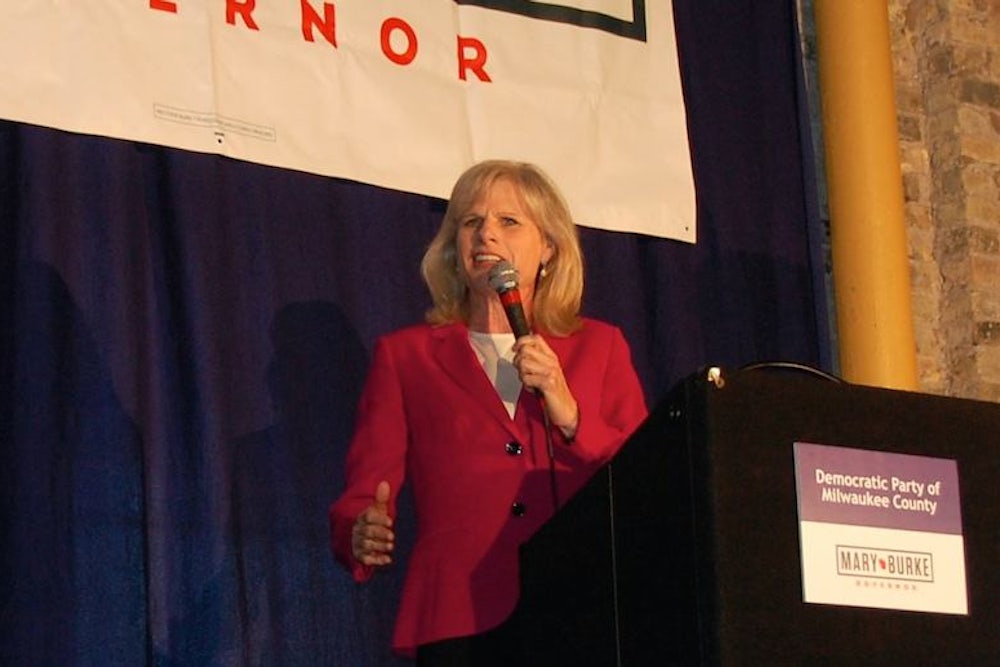GOP incumbent Scott Walker and Democrat Mary Burke are locked in a tight race for the Wisconsin governorship. So naturally, Republicans are trying to create a plagiarism scandal out the revelation that Burke’s economic plan cribs from jobs plans other Wisconsin Democrats used in previous gubernatorial campaigns.
To take just one brief example, one of Burke's goals is "Expanding intern programs to provide help to small farmers and also give students direct agricultural education and experience," which is word for word what Democrat Ward Cammack promised in 2009.
So is Burke guilty of plagiarism? Of course not. She’s guilty of sharing a campaign consultant with other Democrats in her state. And—like every major political candidate in America—she's guilty of checking the “I have a platform” box by posting partisan boilerplate on to a website that almost nobody reads. But that doesn’t make Burke a plagiarist.
Arming politicians with soundbites is a big part of what political consultants do. They send endless memos about it to the press. They want members of their party on the same page, saying the same things. If a Republican member of Congress went on TV and said, “families and small businesses across the country continue to ask, ‘Where are the Jobs?’” nobody would accuse him of plagiarizing John Boehner. If Hillary Clinton were to note that, “we believe our economy grows best not from the top down, but from the middle out, and from the bottom up,” Buzzfeed probably won’t knock her for plagiarizing Barack Obama. Similarly, parts of the Democrats’ 2012 platform look suspiciously like parts of their 2008 platform and nobody finds it strange.
The Burke scandalette falls somewhere along the same spectrum. It’s an instance of lazy p.r. tradecraft, and the consultant who “plagiarized” his own talking points has been fired for it. But it tells us nothing about Burke that distinguishes her from any other major gubernatorial candidate in the country.
Obviously it wouldn’t be OK for a journalist to do the same thing. But journalists should be able to recognize the differences between their own professional obligations and those of the politicians they cover. If a politician copy-pastes large segments of his academic thesis, it’s plagiarism. If he recites long passages taken from various sources in his speeches, it’s plagiarism. If he regurgitates the same sanitized Plan for AmericaTM as a fellow party member, it’s just message discipline working a little bit too well.
